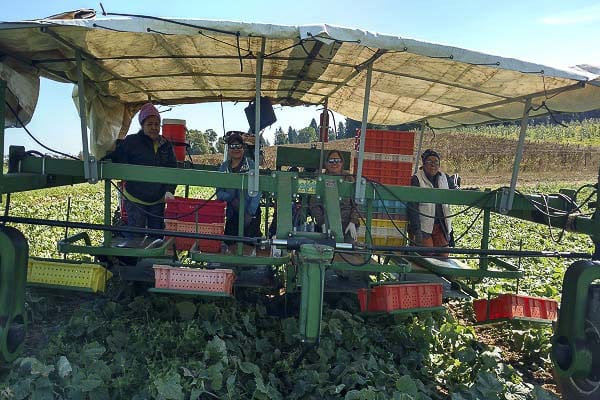Farmland advocacy organization pushes for more protection of agrarian areas
CLARK COUNTY — Roughly 36 percent of Washington is agricultural land. Within Clark County, there is still enough farmland to classify the county as rural. Those facts are weighing heavily on the American Farmland Trust (AFT), especially after the state lost nearly 100,000 acres of farmland since 2001.

That number, by the trust’s own admission, is only 0.6 percent of the 36 percent of agricultural land, but 32 percent of that land lost was classified as nationally significant, also known as land best suited for the production of food.
The AFT is a national organization with a Pacific Northwest regional branch, which “takes a holistic approach to agriculture, focusing on the land itself, the agricultural practices used on that land, and the farmers and ranchers who do the work.”
With regards to Washington, AFT, which identifies as a bipartisan organization, has two main centers of focus: the 35,000 active farms in the state and the land they sit on, and secondly the population of farmers that are presently working them.
“The overall threat of farmland loss in Washington is deceptively low. While our agricultural lands are plentiful, our most productive, versatile and resilient soils are limited and irreplaceable,” Addie Candib, AFT’s Pacific Northwest regional director, said in a release.
Some $9.6 billion of revenue is generated in Washington every year from the agricultural industry, according to AFT. The largest threat the group sees to this industry is the introduction of Low-Density Residential Development, or LDR.
LDR is defined as larger parcels of land that are used for farmettes and ranchettes, but not full-size farms. While this classification of development maintains much of the natural state of the area, it destroys the ability to cultivate true, productive farmland, according to AFT.
LDR is on the rise in Washington, and is causing cultural difficulties as well, AFT says. Many residents moving onto LDR are not used to living in close proximity to farmland and the equipment and smells that go with it. Thus, tension can accumulate, according to AFT.
The secondary issue is the age of many farmers. The average age in the U.S. for a full-time farmer is 55. In Washington, there are five times as many farmers over 65 as there are under 35.

Joe’s Place Farm in Vancouver is a prime example. Joe, who is retiring at the end of this year, will close the famous family run farm store after his retirement. The fate of the farm is not known at this time.
According to AFT, Washington currently has implemented four of the organization’s six policies on improving land use conservation with farmland. The state is actually in the top 12 nationwide. Yet, AFT is currently pushing for better, and seeking to see all six measures implemented in the coming months.
Clark County implements one of those policies directly, with what is known at the state level as the Open Space Farm and Agriculture Program. The program essentially gives tax deferral benefits to residents that use land for the production of crops and livestock for commercial purposes.
AFT will be hosting a Farms Under Threat webinar specific to Washington, and information to attend can be found here.




